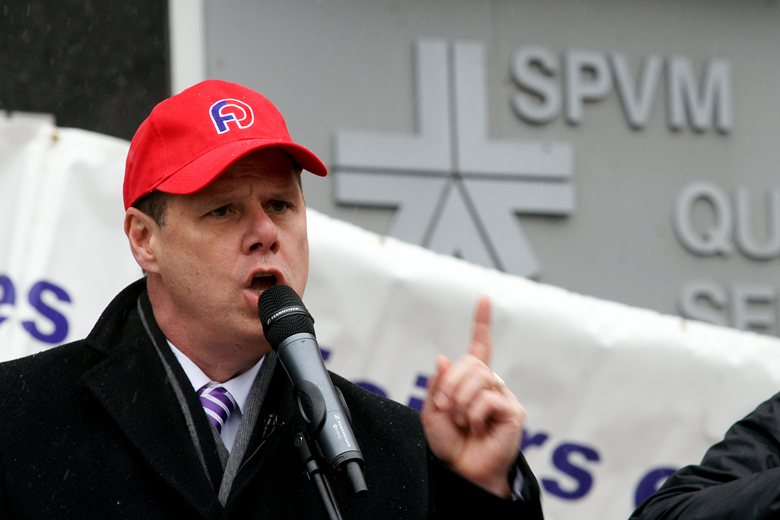Montreal’s anti-radicalization centre isn’t drawing the kinds of terror-related tips that officials had hoped, according to the head of the city’s police union, meaning the “drawers are bare” at a time when Ottawa is considering starting up a similar program.

Yves Francoeur, head of the Montreal Police Brotherhood, made the comments during a news conference in Ottawa on Tuesday morning. Francoeur was asked whether he felt more needed to be done to protect police officers and the public after a possible terror-linked attack on a military recruitment centre in Toronto.
“There are almost no tips coming in there, the drawers are empty,” Francoeur said of Montreal’s anti-radicalization centre, which was inaugurated last year and is the first of its kind in Canada.
The city and the province each contributed $1 million for the facility after a wave of young Quebecers were seduced by the so-called Islamic State and left to fight with the jihadist group, and two launched attacks on Canadian soil. The province then kicked in another $500,000 two weeks ago. Officials have called the centre a success, saying it has passed along nine calls to police and intervened directly with individuals as a result of 147 other calls.
READ MORE: ‘Allah told me to kill people’: Suspect charged in Toronto military recruiting office stabbing
Ottawa is now working on setting up a pan-Canadian anti-radicalization project, dubbed the Canadian Office of Community Outreach and Counter-Radicalization. According to Public Safety Minister Ralph Goodale, it will be folded into the federal budget sometime over the next three to four years.
Francoeur noted that there are still plenty of terrorism-related calls coming in through Quebec’s traditional “InfoCrime” tip line.
“If some of those are addressed quickly, we need to put other investigations aside,” he noted. “You take investigators from organized crime for terrorism files … we’re seeing personnel cuts, budget cuts. We’re doing what we can and crossing our fingers.”
Police in Montreal have been told to be “more careful, even when parked in their vehicle” following the latest attack on uniformed men and women in Toronto, Francoeur said.
The head of the Canadian Police Association, Tom Stamatakis, said his association — which represents over 50,000 officers across the country — is also extremely concerned.
“These are events that have happened in Canada now across a number of provinces, and we’re not used to it,” Stamatakis said. “All of our members across the country … they’re very vulnerable.”
Stamatakis said new policies were put in place following the attacks in Ottawa and Saint-Jean-sur-Richelieu in 2014, because clearly none of these events represent “a one-off.”
“We are having some very preliminary discussions with the public safety minister … about how the federal government can participate with targeted funding around these kinds of investigations related to terrorism, gang crime, organized crime, but those are very preliminary discussions,” he added. “I think there is a role for the federal government.”





Comments